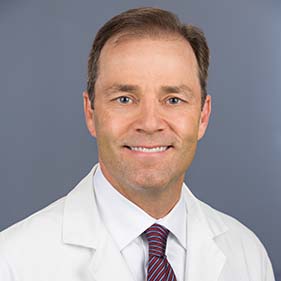Neck pain? The provider you see first affects tests, imaging and follow-up care
Neck pain is quite common, but care and treatments can vary widely. According to a UC Davis Health study, the specialist you see first for your neck pain makes a big difference in how it is diagnosed and treated.
The researchers examined medical services patterns for patients with acute neck pain. Their study showed that patients who saw a chiropractor received fewer and less costly imaging services and were less likely to receive invasive treatments during follow-up compared to those initially seen by physician providers.
“The specialty of the initial provider of medical services has been linked to different care patterns among patients with acute back pain. Little is known about care variations among patients with acute neck pain. Our large national cohort study revealed distinct treatment approaches among specialists treating patients with neck pain,” said lead author Joshua Fenton. Fenton is professor and vice chair of research in the Department of Family and Community Medicine at UC Davis School of Medicine. He is also affiliated with the UC Davis Center for Healthcare Policy and Research.
There are distinct treatment approaches among specialists treating patients with neck pain.”—Joshua Fenton
Who do you see for neck pain?
The study had access to data from claims and electronic health records of over 200 million patients represented in OptumLabs Data Warehouse. The data included a mixture of ages and geographical regions across the U.S.
The researchers examined the records of 770,326 patients with acute neck pain visits between Oct. 1, 2016, and Sept. 30, 2019. They classified the data by initial provider specialty and assessed service utilization during a 180-day follow-up period. The services included subsequent neck pain visits, diagnostic imaging and therapeutic interventions.
The study found that the most common initial provider specialty was a chiropractor (45.2%), followed by primary care (33.4%). Unless seen first by emergency doctors, patients tended to seek providers of the same specialty for their first and subsequent neck pain visits. The researchers noted that in this cohort, the patients had insurance that didn’t require a referral to see a chiropractor.

How do different specialists diagnose and treat neck pain?
The study revealed that the rates and types of diagnostic imaging and treatments during follow-up visits varied widely by initial provider specialty. While rare with chiropractors (less than 2%), more than 30% of patients with initial visits with emergency physicians, orthopedists or neurologists got diagnostic imaging via MRI or CT scans.
Patients initially seen by chiropractors or physical and occupational therapists predominantly received manipulative and physical therapies. These therapies use hands-on techniques to treat pain and improve muscle function. Patients seen by orthopedists had more invasive and costly therapies. For example, one in every 1,000 patients who saw a chiropractor had a major surgery, compared to 34 in every 1,000 who saw an orthopedist. The study also showed that 68 in every 1000 patients who went to an orthopedist received an injection, compared to four in every 1,000 who saw a chiropractor.
“Our findings suggest that providers in different specialties may perceive themselves to have distinct therapeutic roles. Hence, they offer patients a limited range of treatment options with widely varying intensity and costs,” Fenton explained. “We also recognize that patients may select their first provider based on provider availability or the type of intervention that they prefer.”
The study was published in the journal Spine. It was supported by the Palmer College Foundation through Yale University. Coauthors are Patrick Romano, Monika Ray, Shao-You Fang, John Kennedy, and Katrine Padilla of UC Davis Health; Russell Amundson and David Elton of Optum AI Labs; Scott Haldeman of World Spine Care; Anthony Lisi and Jason Sico of Yale University; and Peter Wayne of Harvard Medical School.





